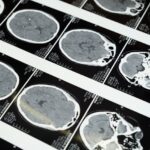Emotion Regulation and Addiction
Emotion regulation does not come naturally to us and is a learned concept that we develop as we age.
It is vital that emotion regulation skills are developed further in addiction recovery since these skills help you deal with negative emotions and thoughts.
Emotion regulation skills help you avoid giving in to addiction triggers and cravings so it is important to incorporate addiction mental health therapy into your rehab and recovery journey. [1]
What is Emotion Regulation?

Emotion regulation is the ability to manage your emotions and the emotional responses you create to issues or feelings.
We don’t naturally possess the skills to regulate our emotions, which is why babies and young children have more temper tantrums than older children and adults.
As you age you gradually learn behaviours and how to cope with differing emotions.
Unfortunately, misusing substances like drugs or alcohol can hinder emotional growth and emotional regulation due to the effects of these substances. This is because substances numb your negative emotions and thoughts.
As a result of a drug addiction or alcohol addiction, you don’t have to deal with your negative emotions or thoughts which greatly reduces your ability to practise regulating these feelings.
This is even more damaging since users generally have a more difficult time managing negative thoughts already, the reason largely behind why they turn to substances in the first place. [2]
Therapy for Emotion Regulation during Recovery
It is important to get therapy for emotion regulation during your time at rehab or when in recovery.
Emotion regulation therapy can help you obtain healthy behaviours, including:
- being able to identify differing emotions and describe these fully
- increasing adaptability
- reducing the use of emotional avoidance strategies
- increasing the ability to identify your personal needs
- being able to manage your interpersonal relationships
Therapy should allow you to accept your emotions and be in a place to manage them, without being in a position where they rule you. [3]
Types of Therapy for Emotion Regulation

Below are some types of therapy that you could consider to develop your emotion regulation skills during recovery at drug or alcohol rehab or after rehab.
Emotion Regulation Therapy (ERT)
The most focused therapy for developing emotion regulation skills is emotion regulation therapy (ERT). It’s thought that Bill Wilson, the founder of Alcoholics Anonymous, created the theory behind ERT.
The theory follows that substances, both alcohol and drugs, act as an emotional relief to users. This, in turn, means that, if you develop an addiction or substance use disorder, you are at risk of being unable to manage your emotions on your own. [4]
If you undertake ERT to establish emotional maturity again, you must also practise emotional sobriety. As you try developing emotional sobriety, you will find that you no longer rely on drugs or alcohol to deal with your emotions.
Instead of turning to substances, you will acknowledge the emotions and deal with them head-on. This process requires a lot of self-reflection and self-analysis, but is worth it for a more successful long-term recovery.
A big part of ERT is being able to further develop emotion regulation skills to be able to use them to your benefit. If you have numbed your emotions using substances for a long time, it can be an overwhelming experience to suddenly have to start dealing with your emotions.
But it is an important part of recovery, so you don’t give in to triggers or cravings again.
Emotion regulation therapy can both improve your mental health and reduce the risk of a relapse.
Cognitive Behavioural Therapy (CBT)
Cognitive Behavioural Therapy (CBT) can also be a great way to regulate your emotions during addiction treatment.
CBT helps you to turn negative emotions and thoughts into positive ones. [5]
Whilst it might sound daunting, there are just two parts to the process of this type of therapy. First, your therapist will help you to identify the cause behind your negative emotions.
This part is much like the first step of emotion regulation therapy where you identify and differentiate between your feelings.
The second part will be about developing positive healthy coping mechanisms. This will help you to reduce the risk of giving in to addiction triggers and experiencing a relapse of your substance use disorder.
Dialectical Behavioural Therapy (DBT)
A different type of therapy that is thought to be the closest to emotion regulation therapy is dialectical behavioural therapy (DBT).
It follows a similar structure to ERT, in the way that it helps you identify, differentiate and be able to describe the emotions you’re feeling. [6]
In addition, it can aid your acceptance of the way you feel.
This change in behaviour can help you manage your addiction triggers and repair relationships that might have been affected by your previous drug addiction or alcohol addiction.
The Takeaway of Emotion Regulation Therapy
By learning how to manage your emotions and thoughts, your risk of having a relapse decreases significantly.
Emotion regulation therapy is an important part of addiction treatment as it helps you to not depend on substances to dull any negative emotions.
Get help today and call Rehab Recovery at 0800 088 66 86 for further guidance and support through your recovery journey.
Sources
[2] https://pubmed.ncbi.nlm.nih.gov/35851975/
[3] https://pubmed.ncbi.nlm.nih.gov/21534653/




